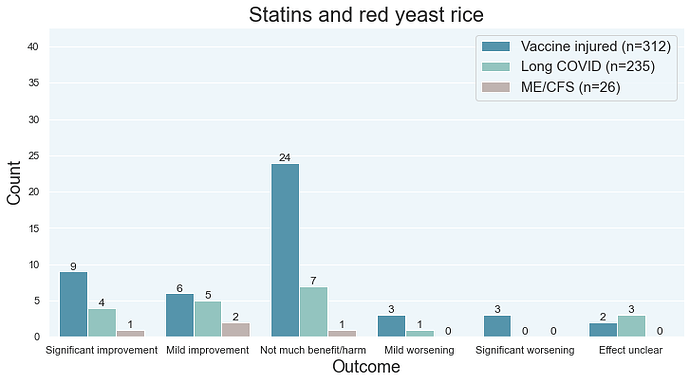There’s survey data on statins but not ARBs. Response rates for current treatments are extremely low, well below what Grote and colleagues report. 3.8% who tried statins are mostly recovered AND rated statins highly.
Some more data from the PES data dump:
Here’s the paper publishing their results:
